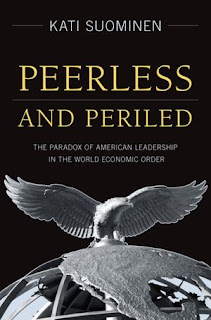 New from Yale University Press: Against War and Empire: Geneva, Britain, and France in the Eighteenth Century by Richard Whatmore.
New from Yale University Press: Against War and Empire: Geneva, Britain, and France in the Eighteenth Century by Richard Whatmore.About the book, from the publisher:
As Britain and France became more powerful during the eighteenth century, small states such as Geneva could no longer stand militarily against these commercial monarchies. Furthermore, many Genevans felt that they were being drawn into a corrupt commercial world dominated by amoral aristocrats dedicated to the unprincipled pursuit of wealth. In this book Richard Whatmore presents an intellectual history of republicans who strove to ensure Geneva’s survival as an independent state. Whatmore shows how the Genevan republicans grappled with the ideas of Rousseau, Voltaire, Bentham, and others in seeking to make modern Europe safe for small states, by vanquishing the threats presented by war and by empire.Richard Whatmore is professor of intellectual history and the history of political thought at the University of Sussex.






























